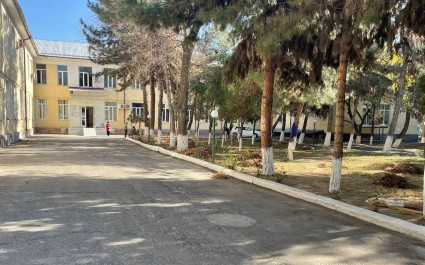The United States Department of State has presented a new Central Asia strategy for 2019–2025. Its publication was announced by the U.S. Secretary of State Michael Pompeo during a recent visit to Uzbekistan and Kazakhstan.
The United States was among the first countries to welcome the independence of Kazakhstan, the Kyrgyz Republic, Tajikistan, Turkmenistan, and Uzbekistan and has worked consistently over the last three decades to support the security, development, and prosperity of each of these countries. Central Asia has always been the strategic and commercial crossroad of civilizations between Europe and Asia.
The United States’ primary strategic interest in this region is to build a more stable and prosperous Central Asia that is free to pursue political, economic, and security interests with a variety of partners on its own terms; is connected to global markets and open to international investment; and has strong, democratic institutions, rule of law, and respect for human rights. A stable and secure Central Asia contributes directly to U.S. efforts to counter terrorism, support regional stability, promote energy security, and enhance economic prosperity in the region and beyond.
Policy Objectives Moving forward, the United States will work with Central Asian states to build their resilience to short and long-term threats to their stability; to strengthen their independence from malign actors; and to develop political, economic, and security partnerships with the United States. U.S. development efforts should foster regional independence and not create dependency. The United States has six overarching and mutually reinforcing objectives. These objectives are:
- Support and strengthen the sovereignty and independence of the Central Asian States, individually and as a region. With consistent U.S. engagement on economic, energy, security, democracy, and governance issues, the Central Asian states will function as a region of cooperative partners, increasing their ability to maintain individual sovereignty and make clear choices to achieve and preserve economic independence.
- Reduce terrorist threats in Central Asia. Central Asian societies will develop resilience to extremist ideology and not become safe havens for terrorist organizations.
- Expand and maintain support for stability in Afghanistan. The Central Asian nations will become stable, secure, and engaged partners of the United States and continue support for international efforts to stabilize Afghanistan.
- Encourage connectivity between Central Asia and Afghanistan. The Central Asian states will develop closer ties with Afghanistan across energy, economic, cultural, trade, and security lines that directly contribute to regional stability.
- Promote rule of law reform and respect for human rights. The Central Asian states will increasing their stability by providing for meaningful citizen input, inclusive political systems through elections, transparent policy formulation, rule of law, and respect for human rights.
- Promote United States investment in and development of Central Asia. The enabling environment for business in Central Asia will be transparent, open, fair, attractive to U.S. businesses, and supportive of broader development goals.
The effective implementation of this strategy will help ensure that Central Asia is a stable and secure region that is deepening engagement with the United States. Each country should implement reforms that open the region to international investment and strengthen democratic institutions. We will work to ensure the countries of the region are increasingly better connected to Europe through the Caucasus, to Afghanistan and South Asia, as well as to global markets. We will help the countries strengthen their economic and political sovereignty, develop deeper resilience, and improve their willingness and ability to cooperate with each other in areas of mutual interest. Successful U.S. engagement in Central Asia will also advance our own national security interests and contribute to the defense of our homeland, citizens, and interests abroad. Close relations and cooperation with all five countries will promote U.S. values and provide a counterbalance to the influence of regional neighbors. Finally, expanding opportunities for U.S. business will enhance economic prosperity in the region, as well as support employment and industry in the United States. C5














